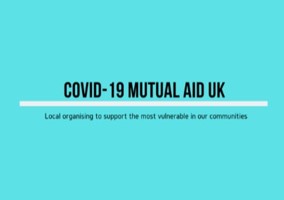Charities are adapting during the pandemic, so that they are able to fulfil their objectives in different ways. Here are some examples of the ways charities are changing amidst the Covid-19 pandemic.
These include innovation in terms of making processes digital, and producing content tailored to the pandemic.
Scouts: ‘The Great Indoors’
Given that schools have closed, the Scouts are providing support and activities to quarantined families.
The charity has made more than one hundred free activities available to help families have fun and develop skills for life while self-isolating.
The activities are free and designed to keep young people entertained and educated throughout any extended time in the home. Each activity has a clear set of outcomes, such as developing communication skills or learning how to problem solve, which will also support schools in their aim to keep young people learning in their homes.
Scout ambassadors will demonstrate the activities on Facebook Live in ‘how to’ sessions.
The activities collection is called ‘The Great Indoors’. Scouts will also reach out to families to share activities and advice via social media, using the hashtag #TheGreatIndoors.
Chief scout Bear Grylls said: “As a parent and chief scout, I know that young people have such huge energy – and that needs channelling in a positive way. Without a plan, a week stuck at home for a family can be as tough as a week in the mountains. Whether you’re climbing Everest, or just trying to make it through to bedtime, a little planning and positive spirit will make all the difference.
“That’s why these brilliant activities will be welcomed by parents right across the UK. There’s something for everyone here to keep learning and having fun, while warding off cabin fever. They’ll help families stay busy, focused and cheerful. It’s not often you’ll find me talking about the great indoors – but this is the exception. Try them out, look after each other, and most of all, make this challenging time a safe and positive time – it’s all state of mind.’
Child.org: Live-streaming quiz
Child.org work with mothers and young children in rural Kenya and Sierra Leone. The charity has been hit hard by the current crisis as it depends on events and tourism.
The charity hosted a live-streamed version of its interactive quiz. It invited families to take part from their homes and donate as they played along. Within the first hour of launching the event, it had more had 300 people sign up.
National Trust: Keeping open spaces and going digital
Many of the National Trust’s places are closing temporarily, but it is trying to keep open spaces available as far as possible, including coast and countryside while observing social distancing measures.
The Trust is still open for business virtually. Via the charity's website people can view the collections online featuring objects and exhibits and download podcasts and videos. Over the coming weeks, the charity aims to increase its efforts to help people connect with nature, wherever they are.
NCT: Switches to virtual antenatal courses
NCT, the UK’s largest charity for parents, has responded to the Covid-19 crisis by moving its antenatal courses online.
The charity is now running virtual classes instead of its usual face-to-face courses.
Chief executive of NCT, Angela McConville, said: “We want to support mums and dads-to-be at a very stressful time while taking on board government guidance about social distancing. So this week we’ve launched our antenatal classes in a virtual format and will be providing online courses for the foreseeable future. Expectant parents need social connection now more than ever.
“Our new courses are interactive, engaging and social and provide an essential lifeline in these worrying times. Our experienced course leaders continue to provide essential evidence-based information about pregnancy, birth and the early days with a newborn. They’re still local so also enable new mums and dads to build a community support network of other parents having a baby at the same time.”
NCT has run over 50 virtual courses this week.
The charity has also set up a dedicated Covid-19 team so it can quickly adapt to changing guidance and respond appropriately to inquiries from parents.
St Barnabas Hospice: Covid-19 bereavement guide
St Barnabas Hospice has put together a guide for those coping with a bereavement during Covid-19.
The St Barnabas Hospice eight tips for coping with bereavement are:
- "Give yourself permission to cry or be emotional – it is ok to show your feelings.
- Include the person in some way – perhaps light a candle or raise a toast.
- Give people permission to talk about your loved one. They may be frightened of upsetting you or saying the wrong thing, so let them know it’s ok to share memories, perhaps by starting a conversation or recalling a memory.
- If you are feeling lonely whilst in isolation, reach out to someone. Pick up the phone, send an email, or start a video chat. The power of a friendly face, voice or words will help relieve some of that loneliness.
- Let loved one know how you are feeling. We all grieve in different ways and you may need to let others know about your feelings and worries. They may not know what to say otherwise.
- Take advantage of a daily walk or run. Exercise will help the mind relax and, as long as you comply with the coronavirus regulations, it will do you good to have a change of scenery once a day.
- Sometimes it is easier to talk to people who aren’t family or friends, but who understand how difficult a bereavement can be. St Barnabas has launched a call-back system for those who need that bit extra help and support.
- Above all, be kind to yourself. Remember, this is just another day."
It has also launched a county-wide call-back counselling service.
Related articles












